What should the U.S. do and not do in Mali?
Ambassador Vicki Huddleston Answers the Questions
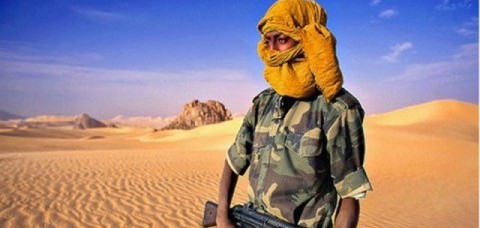
What should the U.S. do and not do in Mali?
Ambassador Vicki Huddleston Answers the Questions
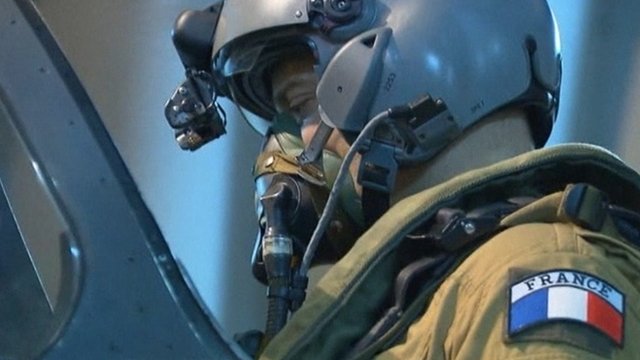 When the French first intervened in Mali, Ambassador Vicki Huddleston penned an Op-Ed in the New York Times outlining reasons why the U.S. should assist France in fighting the terror group Al-Qaida in the Islamic Maghreb (AQIM). Huddleston was the United States ambassador to Mali from 2002 to 2005 and urged the U.S. not to intervene militarily, but instead to play a supportive role by providing intelligence, equipment, financing and training to Mali and other Sahel countries facing terror threats. On April 3, I sat down with Amb. Huddleston after a presentation at the University of South Florida. Here is a brief video for two main questions:
When the French first intervened in Mali, Ambassador Vicki Huddleston penned an Op-Ed in the New York Times outlining reasons why the U.S. should assist France in fighting the terror group Al-Qaida in the Islamic Maghreb (AQIM). Huddleston was the United States ambassador to Mali from 2002 to 2005 and urged the U.S. not to intervene militarily, but instead to play a supportive role by providing intelligence, equipment, financing and training to Mali and other Sahel countries facing terror threats. On April 3, I sat down with Amb. Huddleston after a presentation at the University of South Florida. Here is a brief video for two main questions:
- What should U.S.’s role be in securing Mali?
- An article in the Washington Post not long after the French invasion said something to the effect of “the U.S. spent ten years building up the Malian Army and they folded overnight.” Is the ineptitude of the Malian Armed forces evidence of a failure of the U.S. project to train militaries in the Sahel?
Amb. Huddleston made a compelling argument that Mali is very different from other conflicts like Syria or the Central African Republic which are fundamentally internal conflicts. The north of Mali and its people were occupied by a foreign enemy made up mainly of Algerian extremists. In fact, she argued that now that the main cities have been retaken, the key to preserving a lasting peace might be for Algeria–the hegemon of the region—to contribute a significant peacekeeping force.
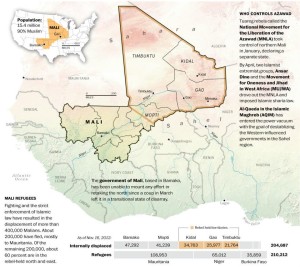 African countries in the region have a vested interest in curbing the rise of extremism from spilling into their countries. A good example of this is abductions in Algeria’s Amenas oil facility which ended catastrophically. For months before the French intervened, the African Union mission and the ECOWAS have been dawdling and delaying the creation of an African Union Mission in Mali (AFISMA). The hesitancy empowered the militants as they marched southward and forced France to intervene, something Africans should loathe to accept.
African countries in the region have a vested interest in curbing the rise of extremism from spilling into their countries. A good example of this is abductions in Algeria’s Amenas oil facility which ended catastrophically. For months before the French intervened, the African Union mission and the ECOWAS have been dawdling and delaying the creation of an African Union Mission in Mali (AFISMA). The hesitancy empowered the militants as they marched southward and forced France to intervene, something Africans should loathe to accept.
It is fair to say that since the French intervention, African troops have contributed in fighting. Chad, for instance, has been the one country from the region that appears to have stepped up its efforts to fight militarily against these radical groups. In the past month they’ve announced the killing of the former and current emir of AQIM, Mokhtar Bel Mokhtar and Abu Zeid.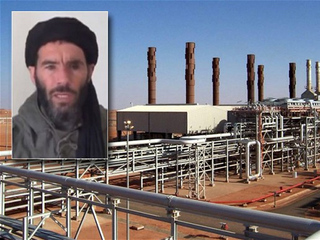
Still, Huddleston believes a lasting peace will include some sort of autonomy for the north and a better job of addressing the legitimate grievances of the Tuareg and Berbere people there. Lasting peace militarily will also require the buy-in of local peoples. She recalled a trip she took up to the north when a Tuareg tribal leader told her:
“ “You will never control this area unless you work with us. We are masters of the desert and have been for thousands of years.””
Here is a video form the presentation where Ambassador Vicki Huddleston explains what she would advise President Obama if she had the chance. Huddleston explains the need for political solutions and how to incorporate the Tuaregs in the process.
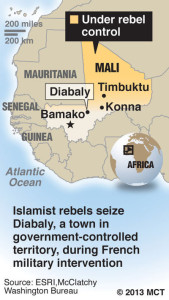 There have been several attacks by remnants of the groups who had been controlling northern Mali (AQIM, MUJAO, Ansar Dine) including some protracted fighting in Timbuktu recently. In order to move away from further chaos, Huddleston suggested the need for an Algerian-led force. However, some pointed out that Algeria’s own Constitution prevents it from intervening militarily in the affairs of foreign country.
There have been several attacks by remnants of the groups who had been controlling northern Mali (AQIM, MUJAO, Ansar Dine) including some protracted fighting in Timbuktu recently. In order to move away from further chaos, Huddleston suggested the need for an Algerian-led force. However, some pointed out that Algeria’s own Constitution prevents it from intervening militarily in the affairs of foreign country.
The Ambassador also discussed the roots of the conflict in Mali and other countries along the 15th parallel, a geographic distinction. She reminded the audience that colonial borders continue to contribute to the conflicts in Africa. More provocatively, she said that some colonial borders were purposely drawn to thrust ethnically or religious enemies together so they would fight each other and be unable to unify to oppose their colonial masters. Here is a brief history from the presentation on how the conflict in Mali started.










